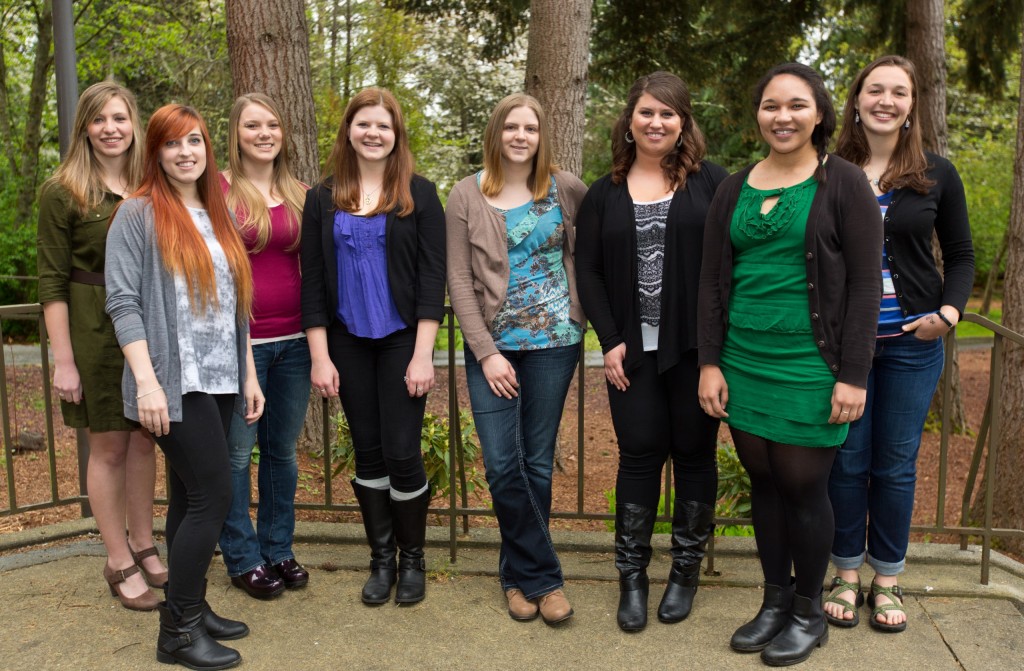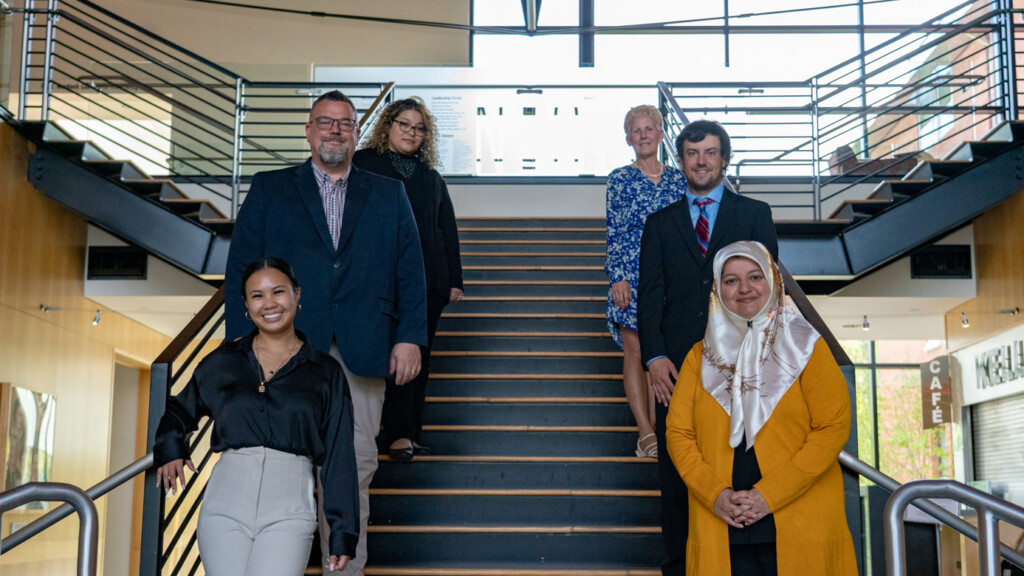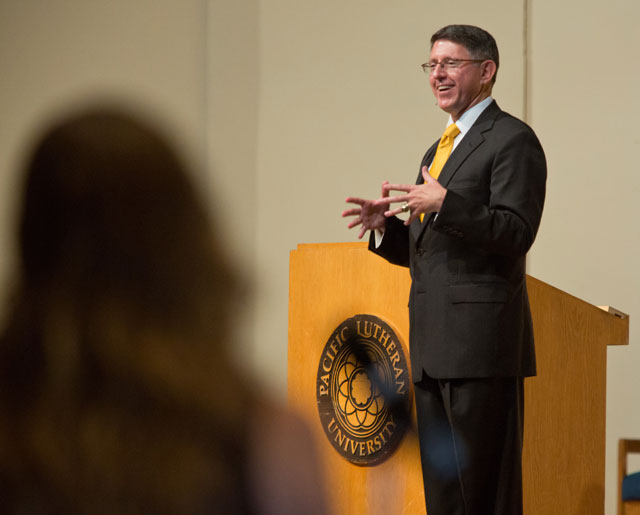Page 95 • (4,652 results in 0.147 seconds)
-

Rachel Samardich ’14, NPCM was recognized for its commitment to peacebuilding. “It’s been just a short time from being nonexistent to winning an award,” said PLU Associate Professor of Communication Amanda Feller, the network’s faculty advisor. Group members have organized multiple on-campus events, including the first-ever PLU Community Dialogue Day in late 2012; observances in Fall 2013 of the International Day of Peace and International Conflict Resolution Day; and a May 1 event titled “The Rwanda
-

much delving into every sort of type of media graphic design, video, photography, audio, all that sort of stuff, it just really intrigued me. And so I applied and I got in and it’s the first time I’ve really worked [video: Isaiah’s voice continues over clips. A man is interviewed in his home on a couch in front of a wall of photos and heirlooms. Students fly a drone on a hillside.] Isaiah: in a like pseudo professional environment and with actual clients. [video: Return to Isaiah.] Isaiah: And so
-

spreadhead countless collaborative connections between PLU business students and local businesses and nonprofits. “It’s a lot of work and really difficult to embed real-world projects into courses,” Mulder explains. “It’s why faculty at other universities typically don’t do it, as they may not want to invest the time, or they don’t see the value when their focus as a faculty member is research.” “In the School of Business, we live the mission of service, leadership and care through our projects. Our
-
risk,” Wallace explained at the time. “And sometimes it doesn’t matter what you do.” Wallace believes his roommate took the new-found perspective to heart. He credits it to a practice that is often taken for granted — listening. “Listening and hearing are two totally different things,” Wallace said. “Hearing, you’re talking to me.” But listening, he said, is processing that information. And doing something with it. Conscious listening often means being uncomfortable. It means struggling to set
-
the top job at PLU three years later, “the last man standing” out of 100 applications, he said. “I’ve grown a lot as a coach and as a person being here,” he said. Steve Dickerson's last game (Photos by John Froschauer, PLU) Dickerson didn’t know his journey would last this long; he says he took everything a year at a time. But PLU is a comforting place that makes it easy to stick around, he said. “It’s a place that grows on you. It might sound cliché, but it’s like one big family.” That family
-

we have here—especially for those who’ve been here a long time or have only been here at PLU. But, in fact, the culture here is really notable and exceptional, and it is something that I’ve been hearing about for years and which very much attracted me to PLU. Our strong commitment to the liberal arts tradition, coupled with a vibrant shared governance structure and a spirit of collaboration and genuine care for each other and for our students all adds up to a rare, if not unique environment in
-
in ways that will streamline work flow in offices across the campus, better support planning and decision making by providing both academic and administrative leaders the real- time information they need, and provide the information platform necessary for a more aggressive, timely, and strategic communications and outreach program. Information and Technology Services is already in the midst of a major reorganization to support this initiative. The long-term impact of the project is exciting to
-
parade of lively dancing, singing and costuming. Still, nothing compares to the real thing. In Trinidad, PLU students don’t just attend Carnival — they’re an intimate part of it. “Here you’re actually participating,” said Bamba, who learned traditional stick fighting during her time abroad last year. “You get to be a part of it instead of just observing.” Trinidad and Tobago Youtz said Carnival is a collective statement about Trinidad’s history and culture — an “astonishing explosion of human
-

classroom a week after the election. “This is where everyone is coming that cares the most. We’re going to get people with a lot of emotion and people who are extremely invested in this.” Sill and Schleeter urged the students to consider how social scientists would engage such an event, by recognizing the significance and trying to remain impartial. “We want to think of this as a very unique and amazing opportunity in which we are living and experiencing history as it’s unfolding in real time,” Sill
-
humor and the personalization of the author to tell the story of being an outsider who looks past his disability, and creates a great life for himself. The Fire This Time: A New Generation Speaks about Race, Jesmyn WardBehind the Beautiful Forevers: Life, Death, and Hope in a Mumbai Undercity, Katherine BooStudent Comment: Behind the Beautiful Forevers brings complexity to the issue of poverty by demanding the reader to see people living in a particular slum in India as individuals with differing
Do you have any feedback for us? If so, feel free to use our Feedback Form.


